Cortisol is an amazing hormone; it can be both a friend and a foe. Most often, its impact on you depends on its level: too much cortisol is very bad, too little is a disaster.
It is very difficult to measure cortisol levels – too many short-term factors can influence it.
The problem is that even within normal ranges, but close to the boundary (upper or lower), cortisol can already start to exhibit all its "negative" effects.
Cortisol and Excess Weight
But with fat reserves in the body, everything is even more complicated, and much more so. Here, cortisol's behavior depends not only on its level but also on the circumstances it encounters.
Do you remember Anton Chekhov's story "The Chameleon"? There, Ochumelov's attitude towards the dog changed depending on who the unfortunate animal was attributed to at the moment. Cortisol's relationship with fat changes in the same way: sometimes it "burns" it, sometimes it hurries to store it.
The thing is, on one hand, cortisol increases the activity of hormone-sensitive lipase, which is an enzyme that actively helps break down fat into fatty acids, and on the other hand, it also activates lipoprotein lipase, which is directly involved in the formation of fat tissue, i.e., increasing fat stores.
Fat Burning
What will be prioritized ultimately depends on which other hormones are present in the blood along with cortisol at the given moment.
You know the saying, "You are known by the company you keep"? This is the same with cortisol: its behavior is determined by who its "friends" are at the moment.
I want to emphasize: I will not touch on the influence of cortisol on muscle tissue at all right now. Let's leave that aside for now and focus solely on fat "burning."
So, when cortisol is in the blood together with growth hormone and catecholamines (adrenaline and noradrenaline), it will fully exhibit its fat-burning capabilities. Meanwhile, our "destructive hormone's" ability to store fat will be suppressed.
Training and Fasting
When do we have high levels of adrenaline and growth hormone? Correct: during a workout and during fasting periods.
The effectiveness of intermittent fasting, in fact, is due to the favorable confluence of circumstances when only cortisol, growth hormone, and catecholamines are present in the blood for a long time (again: we are not addressing the issue of muscle tissue catabolism!).
However, there is a nuance here: the main "fat burners" in our body are, after all, thyroid hormones. More precisely, triiodothyronine (T3), while thyroxine (T4) is much weaker in this regard. But the thyroid gland primarily produces the latter, which is converted into the former in the blood.
So, cortisol inhibits the conversion of T4 to T3. However, it should be noted that the negative effect is pronounced only when cortisol levels remain above normal for a prolonged period. Therefore, both fasting and training should be done in moderation.
For those who adhere to the strictest form of intermittent fasting, it is essential to have "rest" days. If you are used to fasting for a whole day, do it no more than once a week. As for strength training, it is preferable not to precede it with aerobic exercise and not to do cardio immediately after the workout.
Separate them on different days, but if that is not possible and you consider a stationary bike or treadmill essential, make sure to have at least a half-hour break between the aerobic session and strength training.
Cortisol, Growth Hormone, and Insulin
Everything changes dramatically when insulin appears in the blood. This hormone inhibits the action of hormone-sensitive lipase and sharply increases the activity of lipoprotein lipase.
As a result, cortisol begins to work almost exclusively on storing fat. However, if growth hormone enters the blood at this time, it will suppress the activity of lipoprotein lipase.
In the presence of growth hormone, cortisol, even with insulin's help, cannot store fat. So, "chemists" will have an easier time.
But there's a nuance: insulin and cortisol weaken each other's actions. That is, a high insulin level in the blood means cortisol's activity will significantly decrease. And vice versa.
It seems great! But alas: first, this mutual weakening does not happen immediately, and for some time, the combination of insulin and cortisol will continue their "dark work." Second, this mutual weakening occurs at the cost of reducing the sensitivity of specific receptors – for both cortisol and insulin.
Which is highly unpleasant. Why? Simply because the body responds to decreased receptor sensitivity by increasing the corresponding hormone level.
As a result, constantly elevated cortisol levels will lead to insulin resistance, and constantly elevated insulin levels will provoke the body to produce more cortisol. In general, welcome to metabolic syndrome.
Stress
Let's return to stressful situations, which undoubtedly include training and fasting. As I mentioned, everything is good in moderation; prolonged stress has a destructive effect on our bodies.
Regarding fat deposits, prolonged stress significantly increases them. As mentioned earlier, constantly elevated cortisol levels inhibit the conversion of thyroxine to triiodothyronine, which, in turn, slows down fat "burning".
But things are even worse. The problem is that with chronic stress, both growth hormone and catecholamines stop being released into the blood, while the level of a certain neuropeptide Y (NPY) sharply increases.
When NPY enters the blood in large quantities, immature fat cells receive a signal to grow. Neuropeptide Y is directly responsible for the growth of fat tissue.
As a result: constantly elevated stress-induced cortisol levels make our bodies highly sensitive to NPY's activity. Thus, this neuropeptide and cortisol act synergistically to increase fat stores in our bodies. Remember: chronic stress equals fat.
Belly Fat
But that's not all. Mostly, cortisol is produced in the adrenal cortex. But there's another place that eagerly joins in producing this hormone – belly fat.
Those with a significant belly will initially find "burning" fat very difficult – precisely because of the too high cortisol level.
The best solution for them is to minimize cortisol secretion and limit the activity of the "destructive hormone." Also, increase insulin sensitivity.
Cortisol and Hunger
For "fat burning," you need a caloric deficit and hormonal balance. Cortisol can disrupt the latter, but it can also disrupt the former.
The fact is that cortisol (through various mechanisms involving ghrelin, leptin, and the aforementioned NPY) can increase hunger.
Moreover, elevated cortisol levels cause an irresistible desire not just to eat something, but to prefer highly nutritious, high-calorie foods. Junk food, in general. The exact mechanism of this phenomenon is unknown, but its existence is an indisputable fact.
So, as I hope you understand, cortisol only contributes to fat burning for a short time; mostly, this hormone is "concerned" with storing fat. The irony of fate, however...
Cortisol and Weight Loss
Before you ask what specifically needs to be done to turn cortisol from an enemy into a friend that helps "burn" fat, I have provided some practical advice below.
And once again, I will emphasize: the discussion will only be about fat "burning" – I will not touch on cortisol's influence on muscle tissue at all.
Stress and Training
I understand that this advice is difficult to follow, but if you want cortisol to "burn" fat instead of contributing to its accumulation, you will have to try to minimize the number of stressful situations in your life.
What can help you better cope with stress? Vitamin C and other antioxidants, ashwagandha, mucuna pruriens, probiotics, and prebiotics. Also, meditation, healthy uninterrupted sleep for at least eight hours, fresh air walks, and any positive emotions.
Never precede strength training with aerobic exercise. It is generally best to separate these two types of training on different days. Do not do cardio more than three times a week, and limit the duration of aerobic training to 25-30 minutes.
These tips will also help keep cortisol under control and make this hormone do exactly what you need it to do.
Plus Growth Hormone, Minus Insulin
Synthetic ultra-short-acting insulin is a wonderful drug that allows you to recover faster after exertion, protects your muscles from breakdown, and ultimately helps growth hormone do its job better.
But regarding fat "burning": if you are concerned with losing fat, forget about insulin injections for a while. Also, try to consume only foods with a low insulin index (which almost always coincides with the glycemic index, with some exceptions).
Growth hormone, on the other hand, is something you should include in your pharmaceutical arsenal, as it is practically a universal means of fighting fat deposits.
Growth hormone allows cortisol to exhibit its "fat-burning" abilities and prevents it from storing fat. It is best to make injections of synthetic somatotropin daily, even in small doses – 2-4 IU.
Intermittent Fasting
Intermittent fasting not only does not lead to a "rampage" of cortisol but also teaches the body to control this hormone level. It will also increase tissue sensitivity – primarily muscle – to insulin, which will positively affect fat loss.
Start with a 12-hour fasting period (it must be continuous) – it is not difficult to endure. Gradually extend the time of complete food abstinence to 16 hours.
Abdominal Fat
As mentioned, abdominal fat produces cortisol. Therefore, for those with noticeable bellies, taking agents that suppress cortisol synthesis and secretion (specifically suppressing synthesis and secretion, not just reducing activity or blocking cortisol receptors) becomes a necessity.
Regarding the best "anticatabolics," the first to mention is clenbuterol. This agent will not disrupt the hormonal balance in your body, will help reduce cortisol levels in the blood, and at the same time, will strike subcutaneous fat. The daily dosage of "clen" is 40-120 mcg.
Other agents worth mentioning are anabolic steroids oxandrolone and stanozolol – both strongly suppress cortisol synthesis and secretion.
Using them in an intermittent schedule (every other day, taking only in the first half of the day, not exceeding a dosage of 30 mg per day) can avoid negative effects on the endocrine system. And, of course, growth hormone will come in handy – but we've already discussed it.











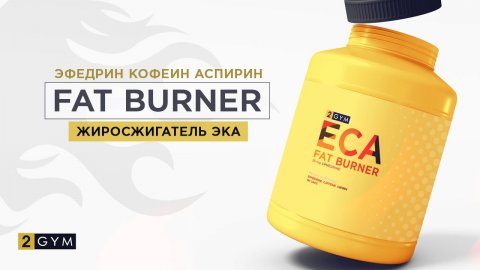
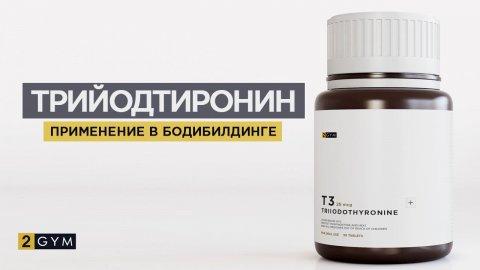
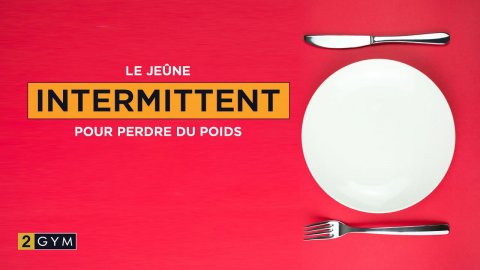

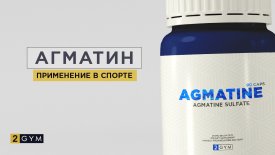
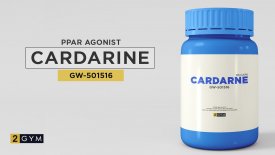
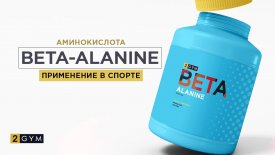
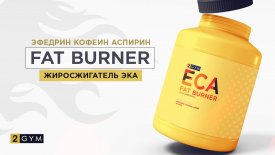

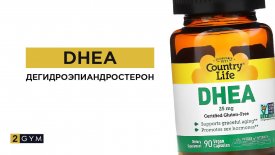
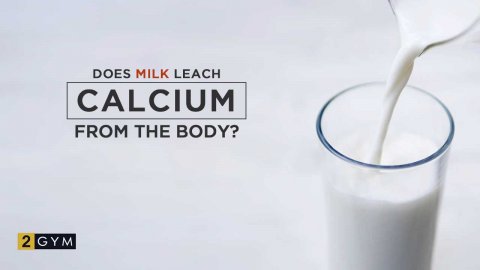

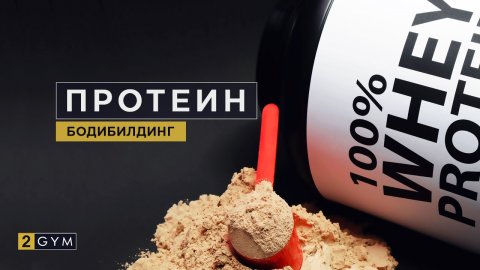


Log in with ( Sign Up ? )
or post as a guest